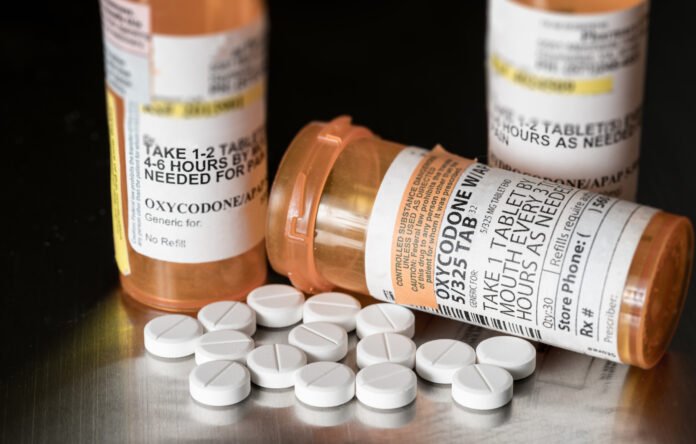Addiction is a disease. No one goes out one day and chooses to become an addict. In fact, many opiate addictions start as doctor-prescribed pain pill usage. Addiction is a complex and devastating disease that can completely alter life.
The effects of this addiction are far-reaching. Addictions affect not only the individual but their family and loved ones as well. Opiate addiction is a need to use drugs, despite the negative consequences that may arise. When addicted to opioids, your ability to consider long-term consequences blurs.
Physical and Emotional Effects
Opiates are powerful painkillers that can have both physical and emotional effects. When taken in increasing amounts over time, opiates alter the user’s brain chemistry. This results in dependence on the drug. Said dependence can lead to withdrawal symptoms if the individual tries to stop.
Withdrawal symptoms can be painful and uncomfortable. They often include nausea, vomiting, diarrhea, muscle aches, and insomnia. Fear of these symptoms can delay an addict’s recovery.
Emotionally, opiate addiction can cause feelings of intense anxiety, depression, and hopelessness. The user often feels that they are unable to cope with everyday life without the use of opiates. This leads to a constant cycle of drug use to numb these feelings.
When you sober up from using the drugs, it’s hard to think of anything except when you can get high again. It’s an impossible and sometimes deadly cycle.
Financial Impact
Being addicted to opioids can also have a significant financial impact on the user.
The cost of opiates can be high, leading to financial strain and debt. Some users turn to illegal activities to fund their addiction. Theft, fraud, or prostitution are all common related crimes. This can lead to legal consequences and further damage to the user’s life.
Relationships
Opiate addiction can also have a profound impact on relationships. The user may become distant from loved ones, preferring the company of other drug users.
They may also become manipulative and deceitful. Lying to loved ones about their drug use or stealing from them to fund their addiction is common.
Overdose Risk
One of the most significant risks of opiate addiction is the potential for overdose. Opiates can depress the central nervous system, leading to respiratory depression. This slows the breathing process, and in severe cases, causes death. Overdoses can occur even with a small increase in the amount of opiates used.
What It Feels Like to Be an Addicted to Opioids
So, what does it feel like to be dependent on opiates? For many users, opiates provide a feeling of euphoria and a sense of calm. This feeling can be addictive. Overuse and dependency cause the user to seek out more drugs to recapture this sensation. Over time, the user’s tolerance to opiates may increase, requiring larger doses each time.
As addiction takes hold, users may find themselves unable to stop using opiates, even if they want to. The need to use becomes overwhelming. They become obsessed with obtaining and using the drug.
As the addiction worsens, the user may begin to neglect their responsibilities. Work, school, or family obligations begin to suffer. They may withdraw from activities, choosing to spend time alone or with other users.
Secretive behavior, isolation, and disinterest in previously liked activities are all warning signs.
Facing Recovery
Recovering from opioid addiction is a challenging journey. It requires dedication, perseverance, and support. It can be a long and difficult road, even with the right treatment and resources. But, with determination, it is possible to achieve sobriety and reclaim a healthy and fulfilling life.
Recovery from opiate addiction is a long and challenging process. The first step is detoxification. It involves stopping the use of opiates and managing withdrawal symptoms. This process can be uncomfortable and dangerous, which is why it is best to undergo detoxification in a medical setting.
Many addicts cannot get through the detoxification process without professional opioid dependency treatment.
After detoxification, treatment options include counseling, therapy, and medication-assisted treatment (MAT). MAT medications include methadone or buprenorphine. These help manage withdrawal symptoms and cravings.
These medications are most successful when combined with psychological treatment. Counseling and therapy can help address the underlying causes of addiction.
Professionals can also help addicts create a toolkit of healthy coping mechanisms. This often includes a plan of action they can take when they want to use drugs.
Rebuilding Relationships
Addiction takes a toll on relationships. People in recovery will need to work hard to rebuild trust and repair them. This is a difficult and uncomfortable process. The person in recovery will need to confront past mistakes and make amends.
But, with time and effort, people in recovery can develop strong and healthy relationships with their loved ones.
Finding Purpose and Meaning
During active addiction, many people lose sight of their goals and aspirations. Recovery provides an opportunity to rediscover one’s purpose and meaning in life. For some people, this process of self-discovery can be empowering and transformative.
Support and Community
Recovery from opioid addiction is not a journey that anyone should take alone.
Having a supportive network of family, friends, and professionals can make all the difference. Support groups and 12-step programs can also be valuable resources. These provide a safe and supportive environment to share experiences and gain strength.
It’s helpful to build relationships with others who have experienced similar situations.
It’s All Worth It!
Overall, recovering from being addicted to opioids is a challenging but rewarding journey. It takes time, effort, and a commitment to make positive changes in one’s life. While the road to recovery may not be easy, it is possible to achieve a fulfilling and healthy life in sobriety













